1. “All in the Family” (1971-1979)
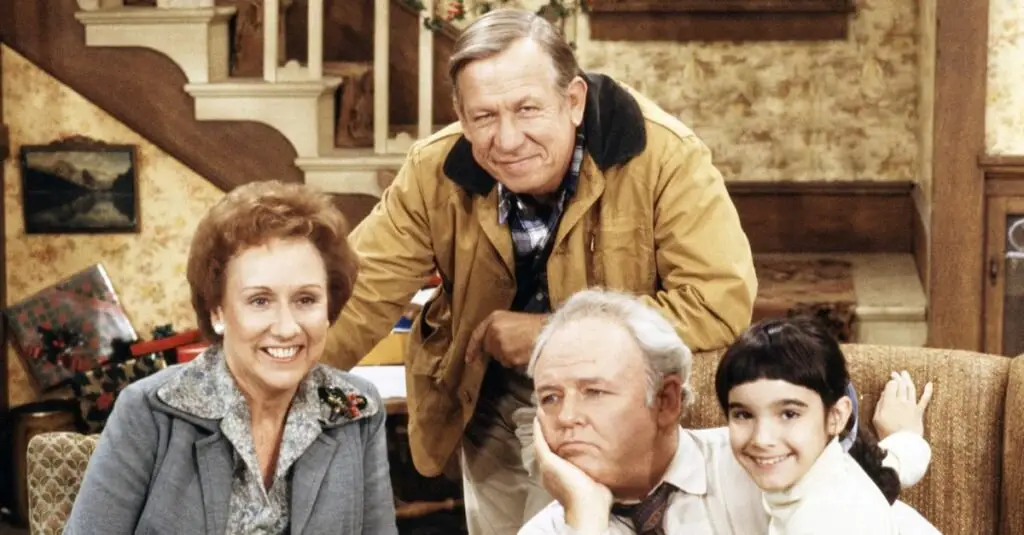
An Unfiltered Commentary: Archie Bunker was a loud-mouthed, opinionated character whose perspective often reflected biases that are widely condemned today. While the show used Archie’s ignorance as satire to highlight real social issues, the blunt delivery of controversial topics would make it difficult for modern networks to air it. Besides, long-running series are rare today, and shows that push boundaries don’t often get the luxury of time to develop.
2. “Married… with Children” (1987-1997)
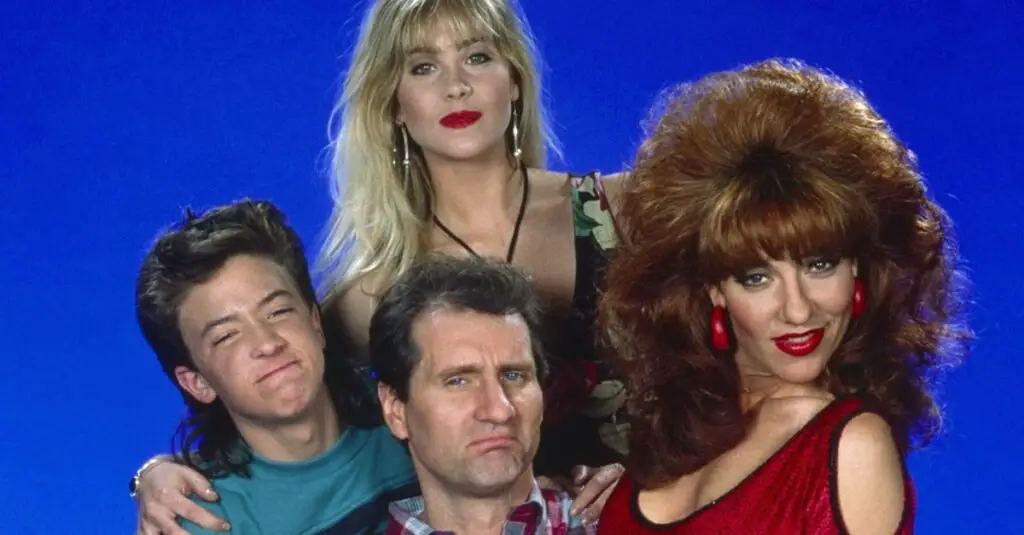
Dark Humor and Dysfunction: Known for its crude humor and often pessimistic take on family life, “Married… with Children” pushed the boundaries of what was acceptable in a sitcom. Al Bundy’s biting remarks and the show’s lowbrow humor would likely clash with modern sensibilities. Plus, today’s viewers expect more nuanced depictions of family life—shows with edgy humor tend to come and go in one or two seasons.
3. “The Dukes of Hazzard” (1979-1985)
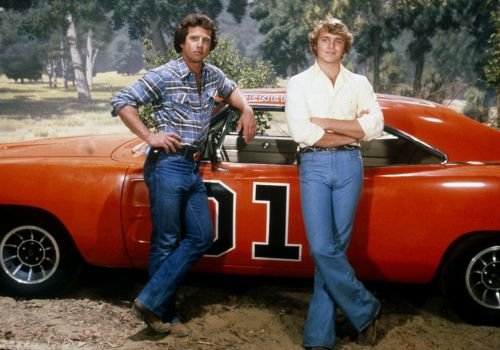
A Flag and Controversy: While “The Dukes of Hazzard” was a lighthearted action-comedy, the show’s iconic car, the General Lee, featuring the Confederate flag, is undeniably problematic in modern times. Although the show’s appeal wasn’t political, its association with outdated symbols would likely prevent it from being greenlit today.
4. “Three’s Company” (1977-1984)
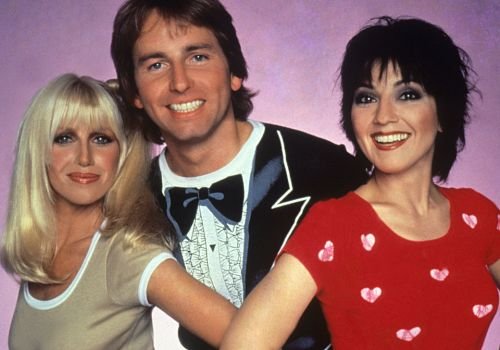
Misunderstandings and Suggestive Humor: A show built around double-entendres and sexual innuendo, “Three’s Company” played into stereotypes and social taboos that would be harder to translate today. With its humor relying on innuendo, the story of a man pretending to be gay to live with two women might be seen as offensive rather than funny in a more socially aware age.
5. “The Beverly Hillbillies” (1962-1971)
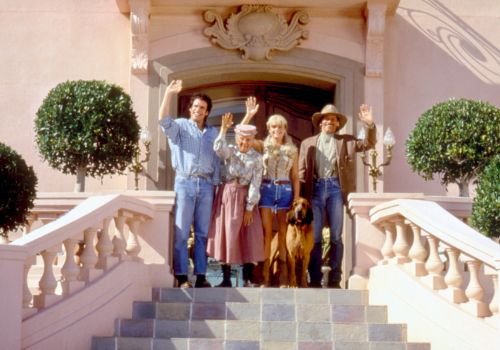
Stereotypes and Fish-Out-of-Water Comedy: The Clampett family’s “rags-to-riches” story is beloved, but its humor leaned heavily on regional stereotypes that modern audiences might find insensitive. With today’s demand for more diverse storytelling, the premise of “The Beverly Hillbillies” might struggle to gain traction or withstand cultural scrutiny.
6. “The Jeffersons” (1975-1985)
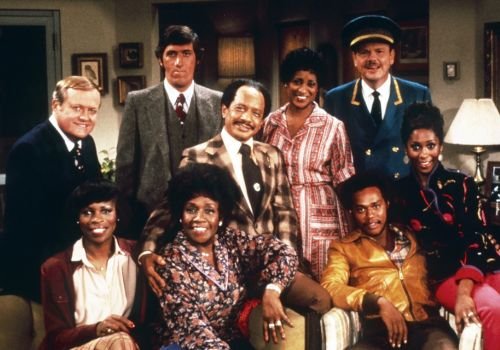
Aspirational Yet Problematic Language: As the story of a successful Black businessman and his family moving up in the world, “The Jeffersons” broke new ground but also featured contentious language and blunt discussions about race. While still celebrated, some of its no-holds-barred jokes would be hard to translate for today’s more sensitive viewers without sparking debate.
7. “Good Times” (1974-1979)
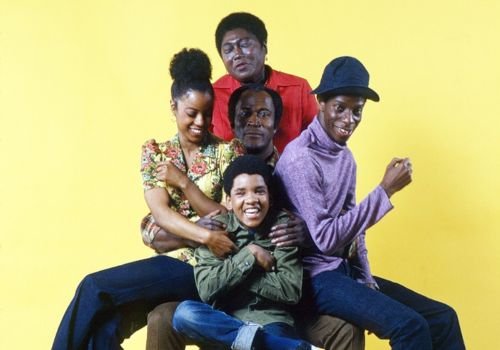
Economic Struggles with a Heavy Dose of Realism: Though it’s still iconic, “Good Times” would be a challenge to remake. The Evans family faced harsh realities, and much of the show’s humor centered around socioeconomic struggles and racial tensions, often with a rawness that TV execs might be hesitant to greenlight today. Plus, shows about serious struggles aren’t given time to develop in today’s short-lived show culture.
8. “I Dream of Jeannie” (1965-1970)
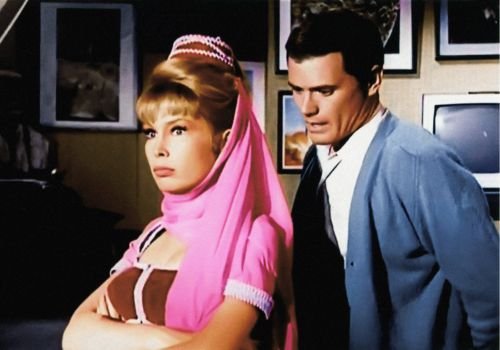
Romantic Tropes and Gender Roles: The storyline of a genie bound to serve her “master” might come across as outdated and insensitive today. Although it was all in good fun back then, today’s audience could find the underlying premise problematic, especially as modern media increasingly questions outdated romantic tropes.
9. “The Honeymooners” (1955-1956)
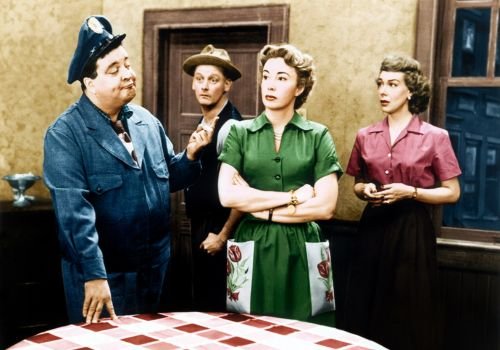
Love and Verbal Jabs: Though often hilarious, Ralph Kramden’s jokes about sending his wife “to the moon” would raise eyebrows now. “The Honeymooners” captured the bickering couple dynamic with wit, but Ralph’s heated threats would likely be a hard sell in a world that prioritizes more respectful portrayals of relationships. Plus, such retro humor might be considered too niche for networks to risk today.
10. “Gilligan’s Island” (1964-1967)

Stereotypical Characters and Unrealistic Situations: While fun and lighthearted, “Gilligan’s Island” leaned into broad character stereotypes and absurdity. The simple plot and caricatured personalities might not hold up against the complex, character-driven comedies of today. Networks today would be reluctant to invest in something so formulaic without a deeper plot.
11. “The Love Boat” (1977-1986)
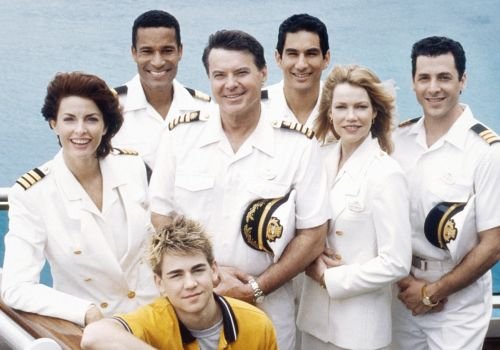
Romantic Escapades on the High Seas: This rotating cast of guest stars getting into humorous, often suggestive situations would face challenges in a world where escapism no longer has the same appeal. “The Love Boat” offered simple fun, but without meaningful development or continuity, it’d likely be sunk by today’s expectations for serialized storytelling and character arcs.
12. “Charlie’s Angels” (1976-1981)
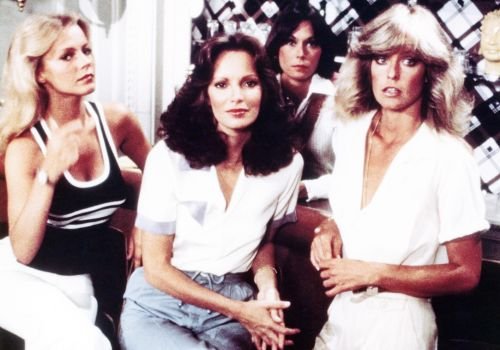
Action-Packed Yet Objectifying: While groundbreaking for its female-led cast, “Charlie’s Angels” often placed more focus on the Angels’ appearances than their sleuthing skills. The show’s brand of glamorized action would face scrutiny for leaning too heavily on appearance over substance, and its episodic nature might also be challenging to sustain in an era of short-lived shows.
13. “Maude” (1972-1978)
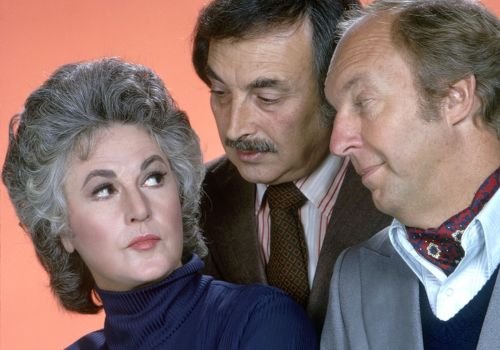
Progressive Themes and Sharp Humor: “Maude” pushed boundaries with bold discussions of women’s rights, aging, and even abortion, but its biting humor and controversial topics would make it hard to replicate today. Shows with this level of rawness rarely have the chance to grow now, with audiences and networks more cautious of divisive topics.
14. “Soap” (1977-1981)
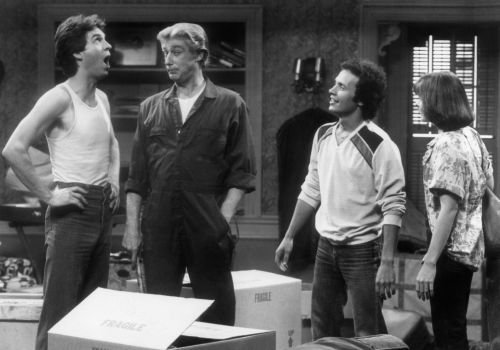
Controversial Storylines and Dark Comedy: As a satirical take on soap operas, “Soap” included topics like extramarital affairs, LGBTQ+ themes, and mental health. Despite its boldness, its over-the-top comedy and controversial subject matter would be a hard pitch today, especially with networks’ quick cancellations for anything that doesn’t instantly succeed.
15. “My Three Sons” (1960-1972)
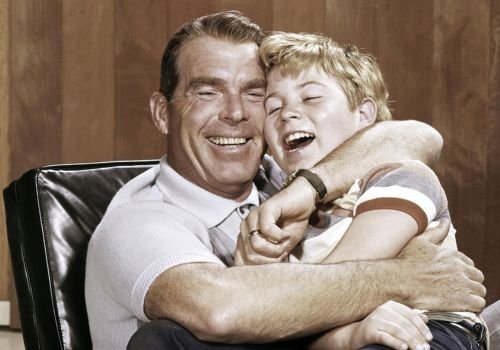
Traditional Family Structure and Simple Humor: “My Three Sons” represented the classic American family, but its straightforward depiction of a widowed father raising three sons might seem too quaint for today’s audiences. Without the dynamic complexities of modern family life or diverse representation, a show like this would struggle to find a place in today’s entertainment landscape.
These classic sitcoms gave us memorable characters and introduced boundary-pushing ideas, but they were also deeply products of their time. Although they might never be recreated today, they remain snapshots of the cultural landscape, reminding us of the way entertainment and society have evolved. In today’s fast-paced, fleeting TV world, the chances of a show being given the time to reach their legendary status are slim.


